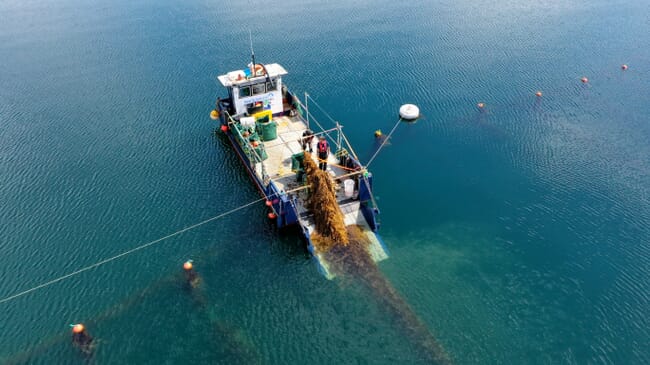
© Alasdair O’Dell/SAMS
The Social Licence for Seaweed Farming project, led by the Scottish Association for Marine Science (SAMS) in Oban and funded by WWF, has used the findings to produce resources for would-be seaweed farmers to improve their social licence, a term given to an activity that has gained public trust and backing.
Lead author, Dr Suzi Billing from SAMS, launched the report this week at the Scottish Seaweed Industry Association annual meeting in Oban. The report includes resources and data from a two-year study on attitudes towards seaweed farming from a range of communities and stakeholders throughout the UK.
Dr Billing stated in a press release: “Seaweed farming is at an early stage of development in the UK and Europe but there is increasing interest from investors. It is seen as a great example of nature-based solutions and is appealing for its potential socio-economic effect, particularly in rural areas.
“At this stage of development, it is important that seaweed farming learns lessons from more established forms of aquaculture. There must be a relationship between the operator and the community before a seaweed farm goes to the planning stage, so that people know what they’re getting."
The report stresses the importance of understanding local social context when thinking about site selection. The study found that people were more likely to accept and support seaweed farming when positive relationships were already established, and most importantly, when the industry as a whole is perceived as environmentally sustainable.
While a relatively new concept in the UK, seaweed farming has been operating at scale for decades in Asia, which accounts for more than 95 percent of global production, powering an $18 (€16.5) billion industry.
Mollie Gupta, WWF-UK seaweed solutions project manager, said: “As we move forward in this exciting journey, social license is going to be pivotal in fostering trust, acceptance and ensuring that any benefits of seaweed aquaculture are genuinely felt and understood by local people."



